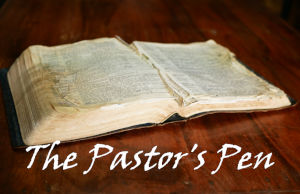
Hezekiah was one of only a few righteous kings who did what was good and right and faithful before the LORD his God (2 Chronicles 31:20). 2 Kings 18:5 tells us that Hezekiah trusted in the LORD, …so that there was none like him among all the kings of Judah after him, nor among those who were before him. Hezekiah was the son of wicked king Ahaz, and later fathered wicked Manasseh. Despite his wicked family, Hezekiah walked faithfully with the Lord, turning idolatrous Judah back to Jehovah. Hezekiah removed the high places and broke the pillars and cut down the Asherah. And he broke in pieces the bronze serpent that Moses had made, for until those days the people of Israel had made offerings to it and called it Nehushtan (2 Kings 18:4). Under his rulership, the nation shared in the overwhelming blessings of God.

Hezekiah was one of only a few righteous kings who did what was good and right and faithful before the LORD his God (2 Chronicles 31:20). 2 Kings 18:5 tells us that Hezekiah trusted in the LORD, …so that there was none like him among all the kings of Judah after him, nor among those who were before him. Hezekiah was the son of wicked king Ahaz, and later fathered wicked Manasseh. Despite his wicked family, Hezekiah walked faithfully with the Lord, turning idolatrous Judah back to Jehovah. Hezekiah removed the high places and broke the pillars and cut down the Asherah. And he broke in pieces the bronze serpent that Moses had made, for until those days the people of Israel had made offerings to it and called it Nehushtan (2 Kings 18:4). Under his rulership, the nation shared in the overwhelming blessings of God.
He had a soft obedient heart that lived for the glory of God. Hezekiah’s malleable heart proved its quality (2 Chronicles 32:26) by putting the Lord first, even following times of sinful failure. True faith never abandons the Lord. We may stumble and faulter in sin, but faith always returns repentantly to walk with the Lord, and Hezekiah is proof of this. During Hezekiah’s 29 year reign over Judah, the prophets Isaiah and Micah served.
Israel had been suffering a long-term military attack by Assyria, who had invaded much of the land and now wanted to capture Jerusalem. But God destroyed the Assyrian army of 185,000 soldiers using just one angel (Isa 37:36). The king of Assyria departed and returned home and lived at Nineveh (Isa 37:37-38) where two of his sons killed him while worshipping an idol.
During this time Hezekiah became sick (from a boil, Isa 38:21) and was about to die, and he prayed to the Lord (2Ch 32:24), but he did not actually ask for healing in the way we would expect (Isa 38:2-3). God responded, I have heard your prayer; I have seen your tears. Behold, I will add fifteen years to your life. 6 I will deliver you and this city out of the hand of the king of Assyria… (Isaiah 38:5-6). The Lord healed Hezekiah by telling Isaiah the prophet to have a cake of figs applied to the boil, that he may recover (Isa 38:21). They applied the fig poultice and the Lord empowered Hezekiah’s healing.
2 Chronicles 32:29 further explains that God had given him (Hezekiah) very great possessions. So, when the Babylonians came to visit, he proudly showed them everything within the kingdom that God had blessed Israel with (Isa 39:4). As a result, God left Hezekiah to himself, in order to test him and to know all that was in his heart (2 Chronicles 32:31). God wanted Hezekiah to truly know his own heart – OUCH. To understand the nature of the pride that had developed, and the deceitful way sin had manipulated his thinking and behaviour. The consequence was, God said, the days are coming, when all that is in your house, and that which your fathers have stored up till this day, shall be carried to Babylon. Nothing shall be left, says the Lord (Isaiah 39:6). This happened approximately 100 years later when evil Manasseh ruled as king, and the Babylonians took them captive.
The remaining 15 years of Hezekiah’s life were well spent in faithfully leading the nation in worship of Jehovah. Hezekiah learned well from his few stumblings. Throughout, he repeatedly centred his affections and loyalties on the Lord. He was a man of prayer who honoured the Word of the Lord. May the same be true for each of us.
